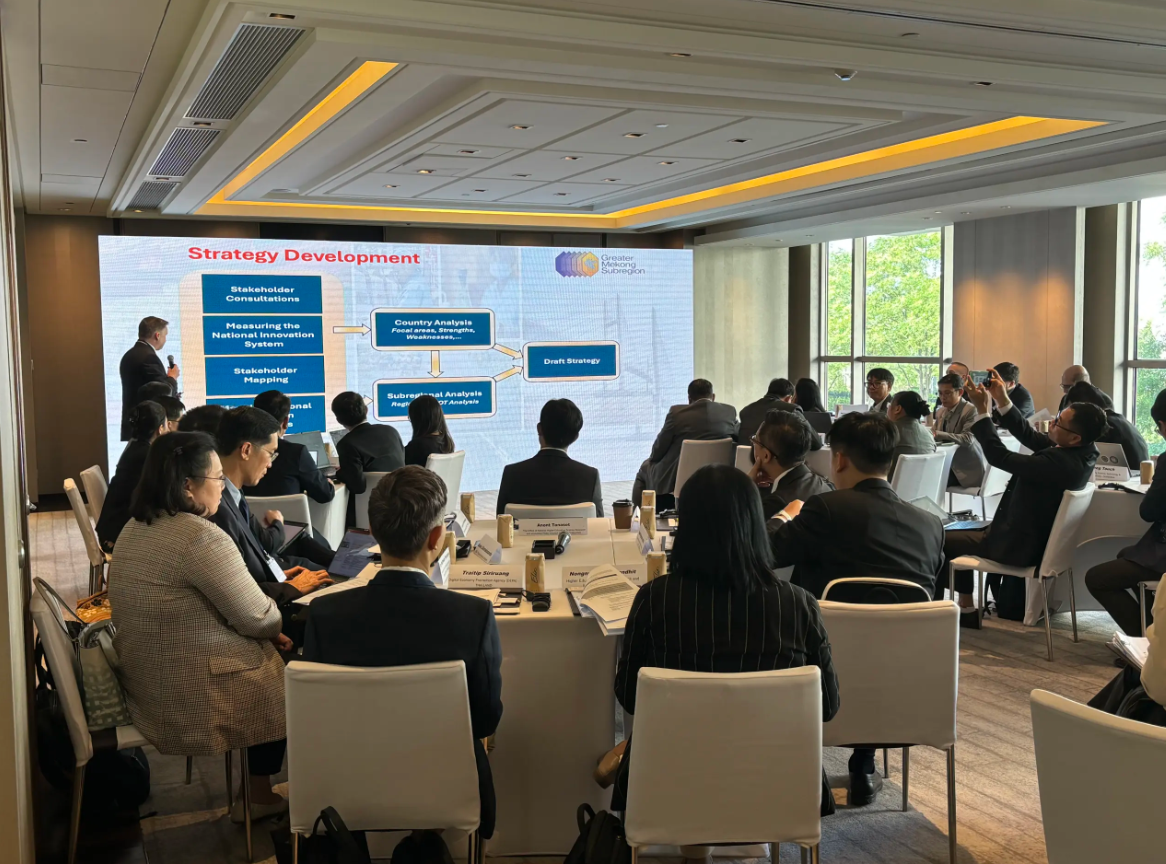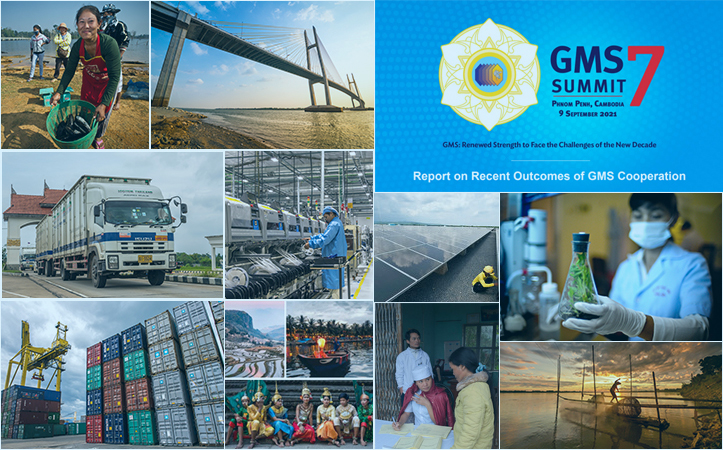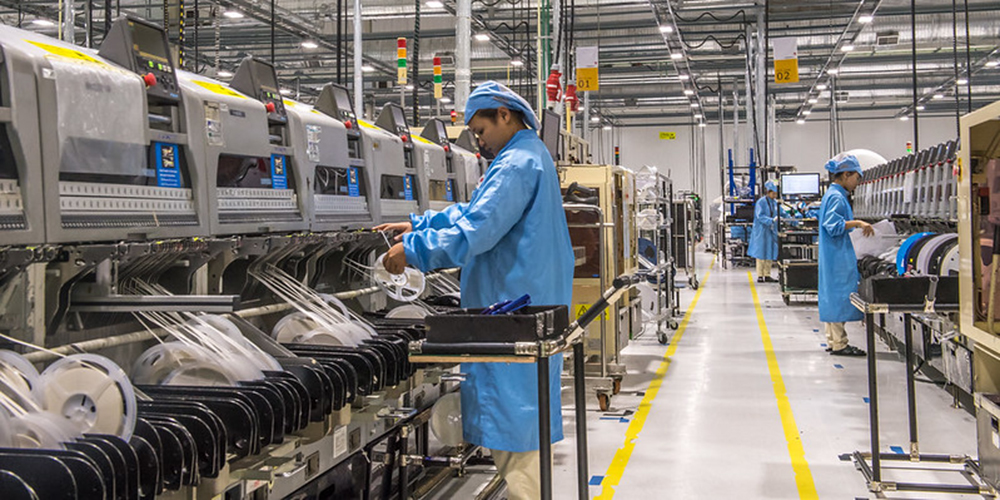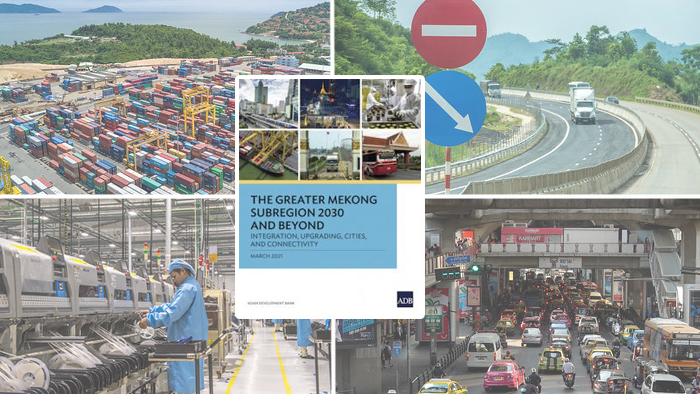GMS in the News
GMS Program Achievements under the Ha Noi Action Plan 2018-2022
The Ha Noi Action Plan 2018–2022 reflected the Greater Mekong Subregion (GMS) Program’s agenda in the last 5 years of the GMS Economic Cooperation Program Strategic Framework 2012–2022. It laid down the agenda for the medium term and guided the Regional Investment Framework in the last 5 years. This feature is based on the Report on Recent Outcomes of GMS Cooperation presented at the 7th GMS Summit of Leaders by Mr. Sok Chenda Sophea, Minister in Charge of the GMS Program, Royal Government of Cambodia on 9 September 2021.
7th Greater Mekong Subregion (GMS) Summit
The summit is the highest forum in the Greater Mekong Subregion (GMS) Economic Cooperation Program where the leaders from the six GMS countries can (i) review and assess the progress made under the program; (ii) renew their commitment to subregional cooperation and its goals; (iii) provide support at the highest political level to the program, its projects, and activities; and (iv) provide broad directions for landmark initiatives under the GMS Program. GMS summits are normally held every 3 years.
GMS: Renewed Strength to Face the Challenges of the New Decade (7th GMS Summit video)
Since 1992, the GMS Program has helped connect countries, enhanced nations’ competitiveness, and bring communities closer together. As it moves toward its fourth decade, the GMS Program will continue to advance the subregion’s extraordinary transformation, preparing for the dynamic challenges of tomorrow through GMS-2030, its long term strategic framework.
5 Key Sectors Can Boost Post-Pandemic Recovery in Southeast Asia
A study shows targeting support to tourism, agro-processing, garments, electronics, and digital trade can help ensure strong recovery from COVID-19.
The Greater Mekong Subregion 2030 and Beyond: Integration, Upgrading, Cities, and Connectivity
This study provides analysis and recommendations for the Greater Mekong Subregion (GMS) countries—Cambodia, the People’s Republic of China (PRC, specifically Yunnan Province and Guangxi Zhuang Autonomous Region), the Lao People’s Democratic Republic (Lao PDR), Myanmar, Thailand, and Viet Nam—to move forward and realize its development ambitions by taking advantage of the opportunities that regional cooperation offers to its members.

GMS Regional Innovation Workshop
The GMS Regional Innovation Workshop was held on 15 May 2024 in Beijing, PRC.
Pages
- « first
- ‹ previous
- 1
- 2
- 3
- 4




